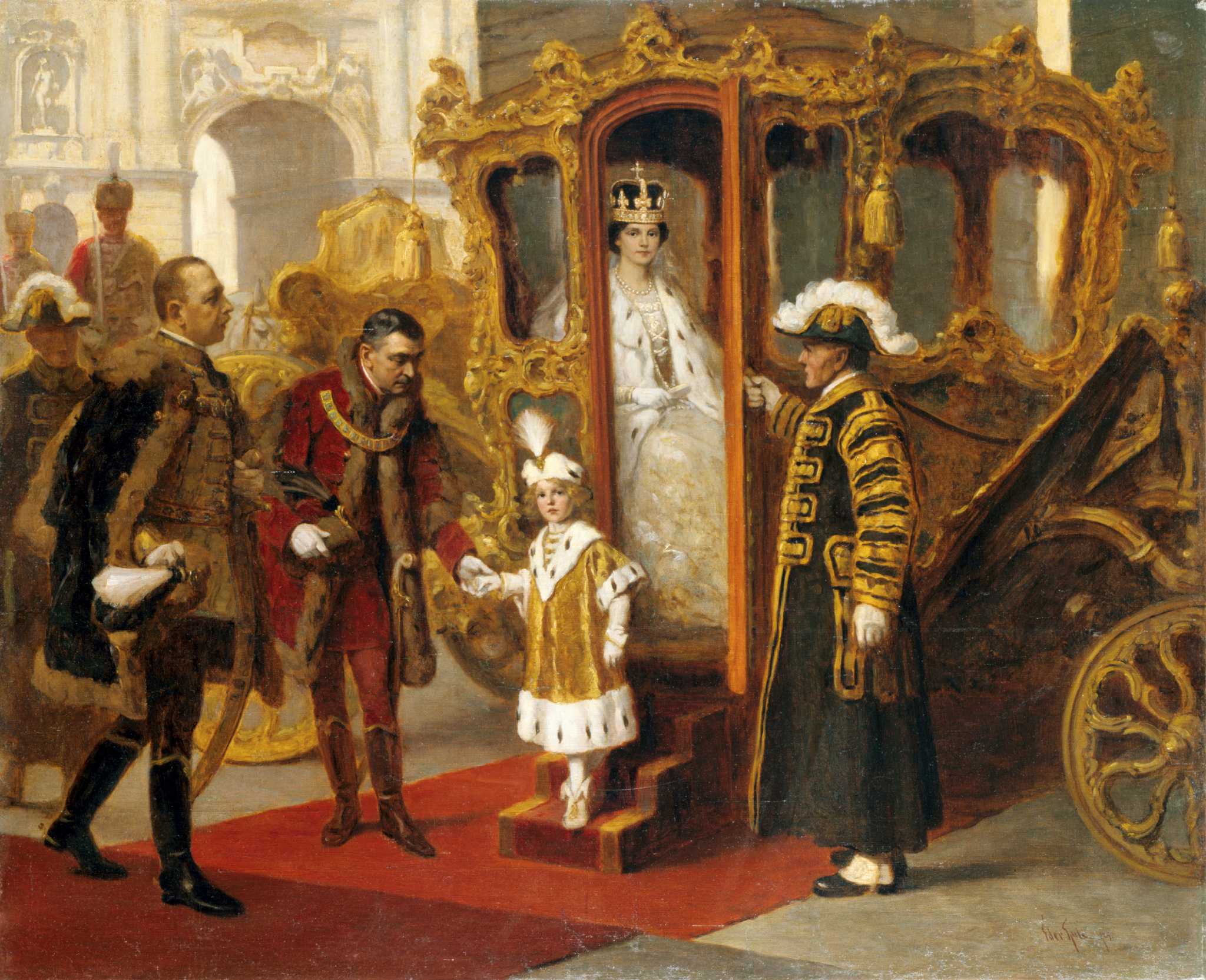
of
Archduke Otto of Austria
~~~ " ~~~
The Kaiserhymne
The Habsburg burial ritual

***
“There went out a decree from Caesar Augustus, that the whole world should be enrolled. And Joseph went up from Galilee to be enrolled with Mary his espoused wife, who was with child.” (Luke 2:1-5) +++ "Render therefore to Caesar the things that are Caesar's..." (Matt 22:21) +++ “Honour all men. Love the brethren. Fear God. Honour the Emperor [Caesar].” (1 Pet 2:17) +++ “Then Paul said: I stand at Caesar's judgment seat, where I ought to be judged….I appeal to Caesar.” (Acts 25:10-11)


 HIRH Archduke Otto of Austria
HIRH Archduke Otto of Austria

who sadly died on 14 June 2011 at Edinburgh

His Excellency Fra' Fredrik Crichton-Stuart RIP
Grand Prior of England
His Excellency Fra' Fredrik Crichton-Stuart, Grand Prior of England, died at his home in Edinburgh on the morning of Tuesday 14th June 2011, after a long illness.
Fra' Fredrik joined the Order of Malta in 1962, and in 1993, on the restoration of the Grand Priory of England, he was appointed Chancellor, becoming Grand Prior in 2008.
For many years he was also Delegate of Scotland and the Northern Marches for the Order, and was a tireless worker for the sick and the needy, assisting in the weekends for the handicapped held regularly at Lake Kielder as well as being an effective and long standing Chairman of Dial-A-Journey in mid Scotland, an organisation he served devotedly up until his death.
Freddy, as he was always known, was born in 1940 at Bute House, formerly owned by the Bute family but now owned by the Bute House trustees and currently the residence and offices of the First Minister of Scotland.
Fra' Freddy was the eldest son of Lord Rhidian Crichton-Stuart and grandson of John Crichton-Stuart, the 4th Marquess of Bute.
Fra' Freddy was educated at Ampleforth and brought up in Scotland and North Africa where his father had business interests. His long career included spells in industry and farming and he was a Chartered Accountant with his own practice until his retirement. He was an officer of the Territorial Army in the Queens Own Royal Glasgow Yeomanry, and a trustee and later Chairman of Una Voce Scotland, and he sat on the boards of a number of charities in Scotland.
Fra’ Freddy Crichton-Stuart was a man of prayer whose love of and commitment to the Order of Malta, its traditions and works, was exemplary and inspirational.
The condolences of the many members of the Grand Priory of England and the British Association of the Order of Malta have been extended to his family and his many friends. He will be sadly missed.
Funeral and requiem details
 Rogation days are days set apart for solemn processions to invoke the mercy of God. The word comes from the Latin rogare “to say or ask” meaning, in this context, to pray to God for good things.
Rogation days are days set apart for solemn processions to invoke the mercy of God. The word comes from the Latin rogare “to say or ask” meaning, in this context, to pray to God for good things. Omnes honorate; fraternitatem diligite; Deum timete; regem honorificate.
Omnes honorate; fraternitatem diligite; Deum timete; regem honorificate. Ego sum Pastor bonus, allelúja: et cognósco oves Meas, et cognóscunt Me Meæ. Allelúja, allelúja.
Ego sum Pastor bonus, allelúja: et cognósco oves Meas, et cognóscunt Me Meæ. Allelúja, allelúja.













.jpg)


























_-002.jpg/220px-Circle_of_Anton_Raphael_Mengs,_Henry_Benedict_Maria_Clement_Stuart,_Cardinal_York_(ca_1750)_-002.jpg)


